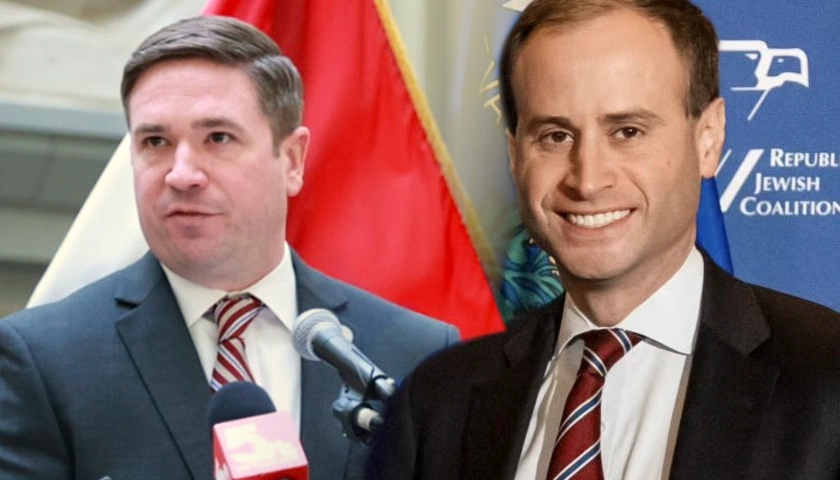by David Stokes and Michael D. Farren
Missouri and Kansas are no strangers to border conflict. No, we’re not talking about the chaos that inspired “The Outlaw Josey Wales.” The fear today is over cross-border job poachers. However, that doesn’t justify giving Fidelity Security Life Insurance $12.7 million just to stay inside Kansas City. No one gets a gold medal in a race to the bottom — but politicians will waste endless taxpayer dollars trying to tell you that they’re “winning.”
Fidelity’s new headquarters — less than a mile from its current home — will be luxurious. The real estate is the most desirable in metro area, overlooking greenspaces in Penn Valley Park and Union Cemetery and sitting on a “transit node” of the expanded streetcar route. One-third of the office space will be rented out at the highest price in the area — more than double the average rate for Class A office space. The building will use less than half of the site, allowing for another high-rise in the future.
But should the public fund a project that overwhelmingly benefits one company? What if the company would likely be successful without subsidies? And why do local leaders even consider subsidizing these kinds of projects?
The answer won’t surprise you: It’s just a sad symptom of the larger problem exemplified by border-hopping businesses. Kansas City politicians might have worried that if they didn’t offer subsidies, Fidelity could be stolen by a suburb, much like how they nearly poached Waddel & Reed from Overland Park.
There have been hopeful signs that everyone is tiring of these border wars. In 2019 and 2020, city and state leaders took the first steps to limit the misuse of subsidies. The two state governors agreed to end subsidies that lure businesses across the state line, and then Kansas City, Mo. reduced its own subsidy program to mirror that offered by Kansas suburbs. More, however, remains to be done.
Denver offers a good example of how to escape metropolitan economic warfare. Since 1987, the mayors of municipalities around the city have met every month to ensure they are cooperating on shared economic growth, rather than undercutting each other.
Moving forward with similar ideas along the Missouri-Kansas border is important for multiple reasons.
First, subsidies generally harm the local economy. Every dollar spent on a subsidy is one that can’t be spent on social services or broad-based tax cuts for all businesses. This creates a negative economic impact that rarely outweighs the projected benefits of the subsidized project. Worse, only one-in-eight subsidies is material in changing a company’s decision of where to locate or expand (as Kansas City recently discovered with BlueScope Construction’s vacuous threat to relocate to Kansas). That means most subsidy spending is a waste.
Second, Missouri’s and Kansas’ existing subsidy reforms are tenuous and temporary. Kansas’ participation in the truce relies on an executive order, meaning it’s only as durable as the next governor’s goodwill. Missouri’s olive branch is a bit sturdier, since it was implemented through statute, but the law expires in 2025. Plus, while the agreement has limited the subsidies local governments can offer, it does not eliminate them entirely.
Third, this is a national problem. State and local governments waste $100 billion every year in an anti-growth competition over jobs. However, a growing coalition of policymakers is working to develop an interstate compact — a more sophisticated and durable version of Missouri’s and Kansas’ “gentlemen’s agreement” — that would provide a sustainable solution.
Both states have a good reason to join in, because without a more holistic and permanent agreement, the border war is almost certain to restart.
– – –
David Stokes is the director of municipal policy with the Show-Me Institute and Michael Farren is a senior research fellow with the Mercatus Center at George Mason University.
Photo “Kansas City, Missouri” by Stuart Seeger. CC BY 2.0.





